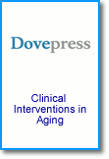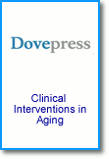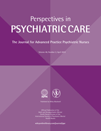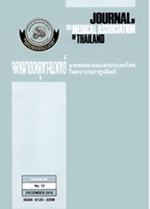inner Strength-Based Inventory (iSBI)
download the iSBI here iSBI-5_1 Eng.pdf
ดาว์นโหลดภาษาไทย ได้ที่นี่ iSBI-V Thai Version.pdf
Chinese version iSBI-V Chinese version.pdf
For permission to use it, please contact Prof. Dr. Nahathai Wongpakaran nahathai.wongpakaran@cmu.ac.th
หากประสงค์จะขออนุญาตในการนำไปใช้ โปรดติดต่อ ศ.พญ. ณหทัย วงศ์ปการันย์ ที่ email : nahathai.wongpakaran@cmu.ac.th
Ten perfections (known as inner strengths) are considered positive psychological characteristics, namely, generosity, morality, mindfulness/meditation, wisdom, perseverance, patience and endurance, truthfulness, determination, loving kindness and equanimity.
Psychometric property
The iSBI shows the acceptable fit statistics with OUTFIT / INFIT ranges from .68 to 1.68. In PCA of residuals, the variance explained by the measurement dimension was 58.0%, and the first principal component of the residuals (first contrast) was 6.8%, while the eigen value was 1.62. No inter-item residual correlations were higher than .3. All items indicated unidimensionality and local independence.
No significant differential item functioning was found due to age and sex.
Person separation was 2.45 for iSBI, corresponding to good reliability coefficients of .86. Item reliability was .99 (>.80), The iSBI items appeared to be targeted well with the persons (less than .5 logits)
Cronbach's alpha values : 0.74 in adolescents ( n = 435), 0.71 in adults (n = 1300), 0.71 in older adults (n = 232), 0.86 in Chinese version ( n= 290, Mao et al., 2023)
Administration
The score ranges from 5-50. The higher score, the higher level of that respective character.
Total score of the iSBI can be used to represent the construct of “inner strength.”
However, individual score of each 10 item can be used independently. As a single item, there is no internal consistency to be calculated. Test-retest may be a better measure of participant consistency (or at least equally as informative as Cronbach’s alpha)(Shen C, et al, 2019). Reliability of each score is examined among 20 participants using two-week test-retest reliability. Intraclass correlation coefficient (ICC) with absolute agreement method is analyzed, and the results are shown to be acceptable ( ICC > 0.7).
|
Intraclass Correlation Coefficient
|
|
|
Average measures
|
95% Confidence Interval
|
F Test with True Value 0
|
|
iSBI item
|
Lower Bound
|
Upper Bound
|
Value
|
df1
|
df2
|
Sig
|
|
1
|
.873
|
.679
|
.950
|
8.587
|
19
|
19
|
.000
|
|
2
|
.922
|
.802
|
.969
|
14.038
|
19
|
19
|
.000
|
|
3
|
.853
|
.632
|
.941
|
6.690
|
19
|
19
|
.000
|
|
4
|
.848
|
.612
|
.940
|
6.317
|
19
|
19
|
.000
|
|
5
|
.931
|
.825
|
.973
|
13.875
|
19
|
19
|
.000
|
|
6
|
.923
|
.805
|
.970
|
14.231
|
19
|
19
|
.000
|
|
7
|
.828
|
.575
|
.931
|
5.957
|
19
|
19
|
.000
|
|
8
|
.880
|
.696
|
.953
|
8.030
|
19
|
19
|
.000
|
|
9
|
.934
|
.834
|
.974
|
14.550
|
19
|
19
|
.000
|
|
10
|
.783
|
.444
|
.914
|
4.441
|
19
|
19
|
.001
|
Scoring and Interpretations
Norm is estimated in 2505 Thai sample, aged 15-90 years old.
Individual item:
|
Strength
|
Mean
|
SD
|
low
|
average
|
High
|
|
Truthfulness
|
3.13
|
1.162
|
1-2
|
3
|
4-5
|
|
Perserverance
|
2.81
|
1.049
|
1-2
|
3
|
4-5
|
|
Wisdom
|
3.32
|
1.084
|
1
|
2-3
|
4-5
|
|
Generosity
|
3.68
|
1.007
|
1-2
|
3-4
|
5
|
|
Morality (virtue, 5 precept)
|
3.21
|
1.056
|
1-2
|
3
|
4-5
|
|
Mindfulness (Meditation)
|
2.17
|
1.133
|
1
|
2-3
|
4-5
|
|
Patience and endurance
|
3.19
|
1.123
|
1-2
|
3
|
4-5
|
|
Equanimity
|
3.58
|
0.996
|
1-2
|
3-4
|
5
|
|
Determination
|
3.37
|
1.118
|
1-2
|
3
|
4-5
|
|
Lovingkindness
|
3.74
|
1.19
|
1-2
|
3-4
|
5
|
Total score of iSBI
Conversion Table:
Using Rasch analysis, total raw score can be transformed into scale score (0-100) for clinical use especially when used as repeated measure.
|
Raw score
|
Scale score
|
Raw score
|
Scale score
|
Raw score
|
Scale score
|
|
10
|
00
|
24
|
44
|
38
|
59
|
|
11
|
12
|
25
|
45
|
39
|
60
|
|
12
|
19
|
26
|
46
|
40
|
61
|
|
13
|
23
|
27
|
47
|
41
|
63
|
|
14
|
27
|
28
|
48
|
42
|
64
|
|
15
|
29
|
29
|
49
|
43
|
66
|
|
16
|
32
|
30
|
50
|
44
|
68
|
|
17
|
34
|
31
|
51
|
45
|
70
|
|
18
|
35
|
32
|
52
|
46
|
73
|
|
19
|
37
|
33
|
53
|
47
|
76
|
|
20
|
39
|
34
|
54
|
48
|
81
|
|
21
|
40
|
35
|
55
|
49
|
88
|
|
22
|
41
|
36
|
56
|
50
|
100
|
|
23
|
42
|
37
|
57
|
|
|
| |
|
|
|
|
|
For Categorical interpretation:
iSBI score 10 – 20 = low level of strength
iSBI score 21- 39 = Average (21-29 = Average-low, 30-39= average high)
iSBI score 40-50 = high level of strength
Reference:
Nahathai Wongpakaran, Tinakon Wongpakaran & Pimolpun Kuntawong (2020) Development and validation of the (inner) Strength-Based Inventory, Mental Health, Religion & Culture, Published online: 09 Jul 2020 :DOI: 10.1080/13674676.2020.1744310
Shen C, Wang MP, Ho HCY, Wan A, Stewart SM, Viswanath K, Chan SSC, Lam TH: Test–retest reliability and validity of a single-item Self-reported Family Happiness Scale in Hong Kong Chinese: findings from Hong Kong Jockey Club FAMILY Project. Quality of Life Research 2019, 28(2):535-543.
Factors Associated with Depression, Anxiety, and Somatic Symptoms among International Salespeople in the Medical Device Industry: A Cross-Sectional Study in China - PMC (nih.gov)












